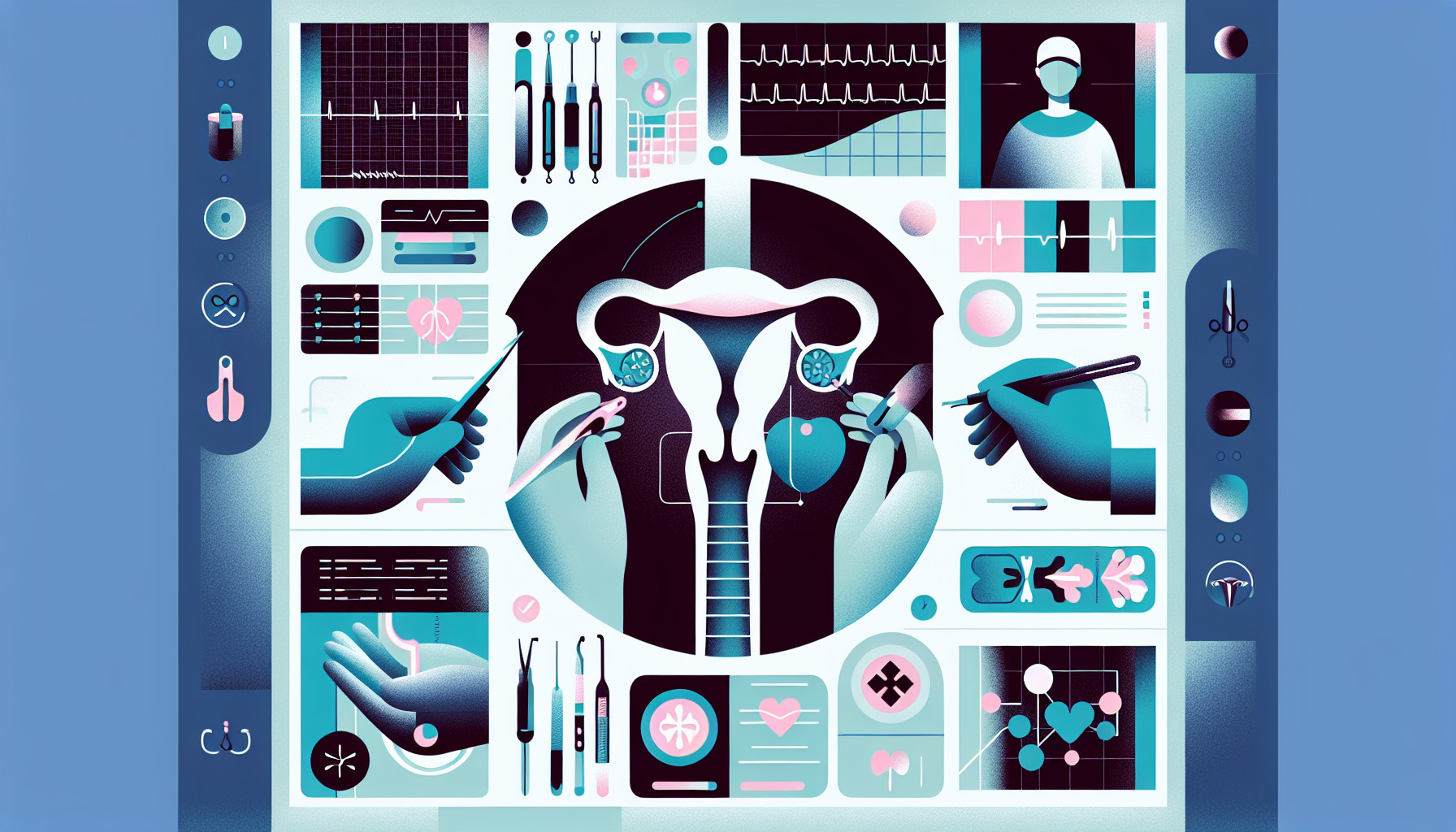Our Summary
This research paper looks into the rates of painful menstruation (dysmenorrhea) after a procedure called radiofrequency endometrial ablation - a treatment often used to address heavy menstrual bleeding.
The study included 307 women who had this procedure between 2007 and 2013. After considering various factors, 144 of these women were included in the study.
The results showed that about half of the women who had painful periods before the procedure experienced relief from this pain afterwards. Only a small number of women who did not have painful periods before the procedure reported new onset of dysmenorrhea afterwards.
Also, the study found that the chance of painful periods resolving after the procedure was more likely if the volume of menstrual flow was reduced. The frequency of bleeding did not seem to have an impact.
In simpler terms, this study suggests that for women who have painful periods and heavy menstrual bleeding, this procedure could potentially help in reducing the pain, especially if it also reduces the amount of menstrual flow.
FAQs
- What was the purpose of the research paper on radiofrequency endometrial ablation?
- What did the study conclude about the rates of painful menstruation after undergoing radiofrequency endometrial ablation?
- Does reducing the volume of menstrual flow increase the chances of painful periods resolving after the procedure?
Doctor’s Tip
Based on these findings, a helpful tip a doctor might give to a patient considering endometrial ablation is to discuss their current symptoms of painful periods and heavy menstrual bleeding. If the patient is experiencing both of these symptoms, there is a chance that the procedure could help alleviate the pain associated with their periods. Additionally, the doctor may recommend monitoring the volume of menstrual flow before and after the procedure to see if there is a reduction, which could potentially lead to a decrease in painful periods. It is important for patients to have a thorough discussion with their doctor about their individual symptoms and potential benefits of endometrial ablation before moving forward with the procedure.
Suitable For
Overall, patients who are typically recommended for endometrial ablation are those who experience heavy menstrual bleeding and/or painful periods (dysmenorrhea). These symptoms can significantly impact a woman’s quality of life and may not improve with other treatments such as medication or hormonal therapies. Endometrial ablation is considered a minimally invasive procedure that can effectively reduce or eliminate these symptoms in many cases. However, it is important for patients to consult with their healthcare provider to determine if they are a suitable candidate for this procedure based on their individual medical history and circumstances.
Timeline
Timeline:
Before endometrial ablation:
- Patient experiences heavy menstrual bleeding and painful periods (dysmenorrhea)
- Patient consults with a healthcare provider to discuss treatment options
- Healthcare provider recommends endometrial ablation as a potential solution
- Patient undergoes pre-procedure evaluations and tests to determine if they are a suitable candidate for the procedure
After endometrial ablation:
- Patient undergoes the endometrial ablation procedure, which involves removing or destroying the lining of the uterus
- Patient may experience some discomfort or cramping immediately following the procedure
- Patient is monitored for any potential complications post-procedure
- Over time, patient may experience a reduction in the volume of menstrual flow
- Within a few months to a year after the procedure, patient may notice a reduction in the pain associated with their periods (dysmenorrhea)
- Patient follows up with their healthcare provider for any ongoing symptoms or concerns
Overall, the timeline for a patient before and after endometrial ablation involves consultation, evaluation, the procedure itself, recovery, and monitoring for long-term results.
What to Ask Your Doctor
Some questions a patient should ask their doctor about endometrial ablation include:
- What is endometrial ablation and how does it work?
- Am I a suitable candidate for endometrial ablation based on my medical history and current symptoms?
- What are the potential risks and side effects associated with endometrial ablation?
- What is the success rate of endometrial ablation in reducing heavy menstrual bleeding and painful periods?
- How long does the procedure take and what is the recovery time?
- Will I still be able to get pregnant after undergoing endometrial ablation?
- Are there any alternative treatments or procedures that I should consider before opting for endometrial ablation?
- How often will I need to follow up with you after the procedure?
- What should I expect in terms of changes in my menstrual cycle after undergoing endometrial ablation?
- Can you provide me with more information or resources to help me make an informed decision about whether or not to proceed with endometrial ablation?
Reference
Authors: Wyatt SN, Banahan T, Tang Y, Nadendla K, Szychowski JM, Jenkins TR. Journal: J Minim Invasive Gynecol. 2016 Nov-Dec;23(7):1163-1166. doi: 10.1016/j.jmig.2016.08.825. Epub 2016 Aug 30. PMID: 27590567
